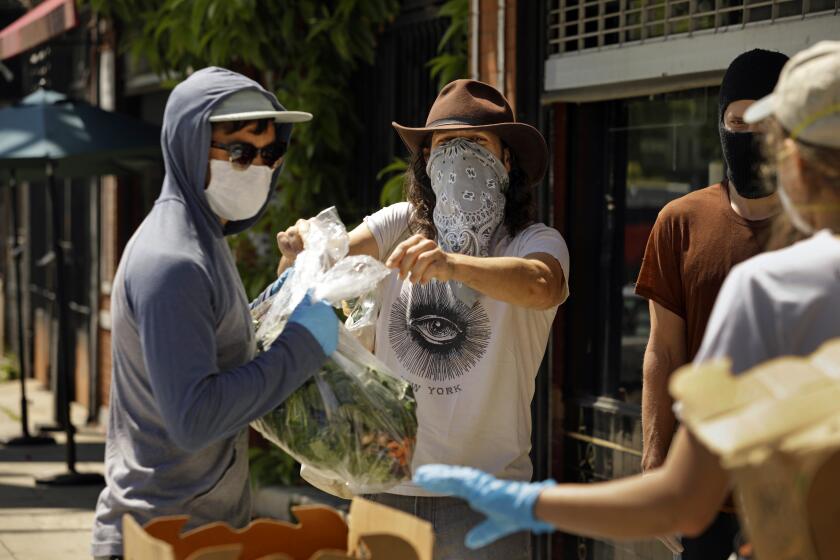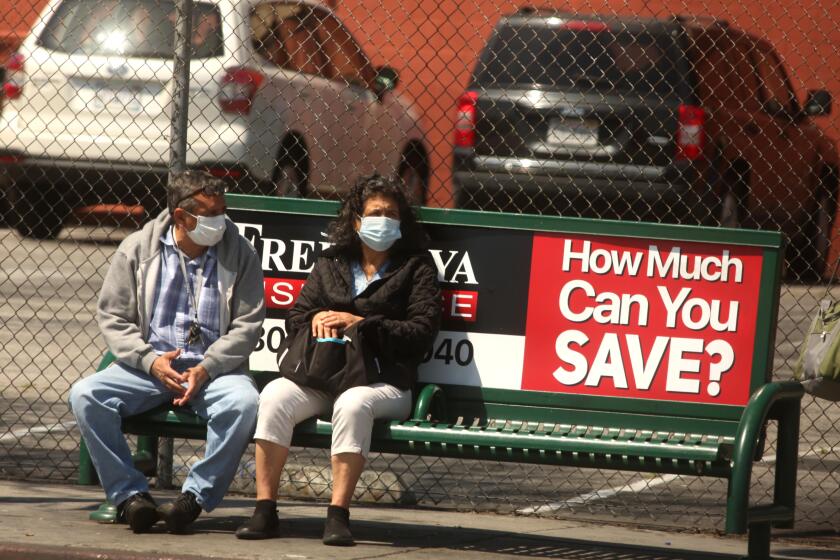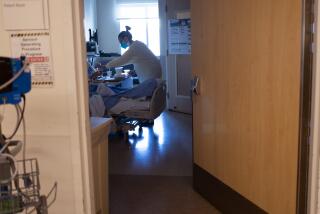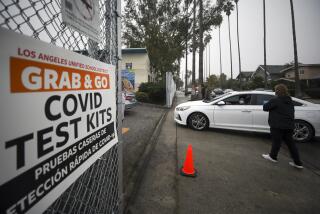Ventura County coronavirus cases creep up as officials mull easing stay-at-home order
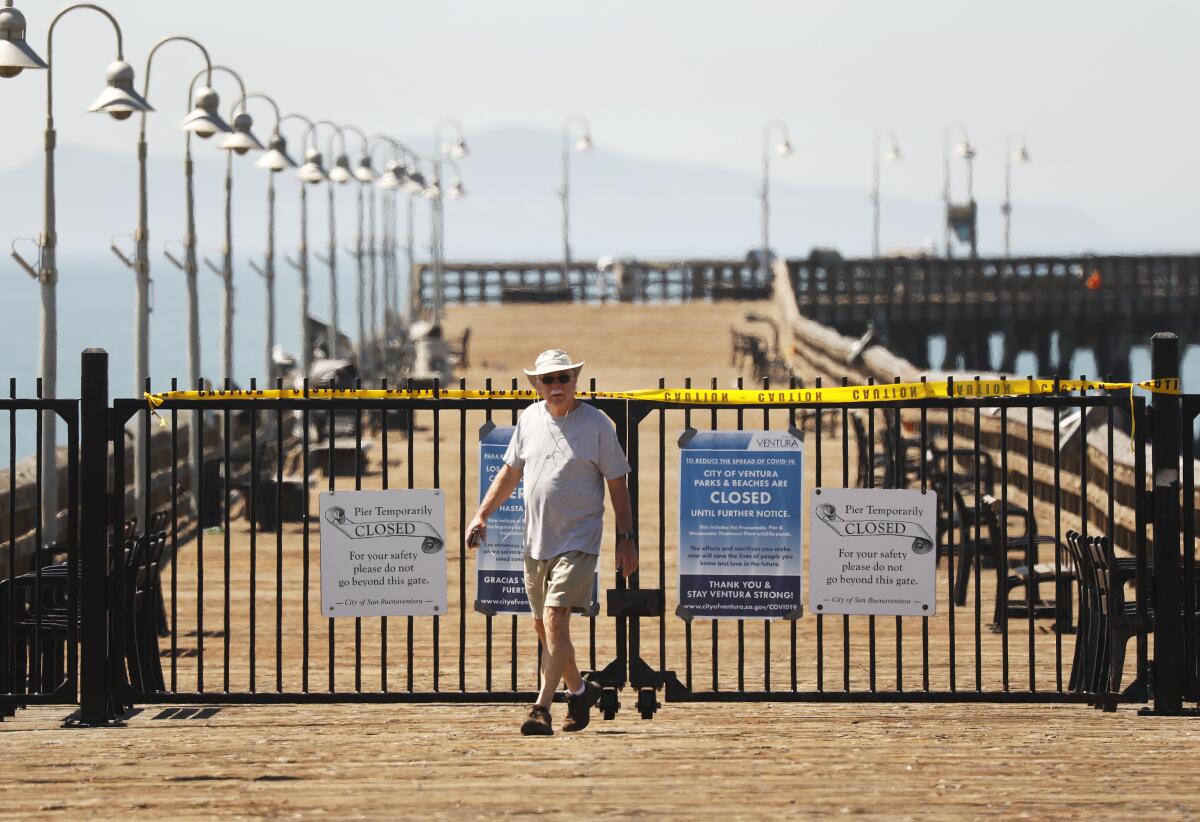
- Share via
Ventura County health officials struck a hopeful tone Wednesday, saying efforts to stop the spread of the coronavirus were working even as the number of people testing positive continues to climb.
The county reported a total of 365 infections, an increase of 15 from the previous day. The number includes 166 instances in which someone recovered, 68 cases of hospitalization and 186 cases still under active quarantine, down from 201 a day before.
The county has tested 6,500 people, “quite a jump” from the previous count earlier this week of about 5,800, according to Dr. Robert Levin, the county’s public health officer. One in 20 people tested were positive for COVID-19, he said.
Three more deaths linked to the virus were reported late Tuesday, bringing the death toll to 13. Two of the latest fatalities were people in their 50s, county spokeswoman Ashley Bautista said. All of the other victims were in their 70s and 80s, and all suffered from preexisting health conditions, she said.
On Wednesday, Levin gave a racial breakdown of those who have died. Eleven were white, one was Latinx and the ethnicity of one was unknown. Nine died at the hospital and four in their homes.
It could be sometime in May before California officials begin to seriously contemplate how they might start to gradually ease the stay-at-home order.
Despite the rise in reported cases, health officials seemed reassured that the measures the county has taken to reduce the impact of the virus are helping. Jessica Hill, the clinical nurse manager of Ventura County Medical Center, said community residents who are following the stay-at-home order have helped give medical professionals the time they need to prepare.
Speaking at a news conference Wednesday, Levin suggested a new order in the coming days could ease current restrictions as long as it does not undo the progress that’s been made. He said he doesn’t foresee adding any further stipulations to the stay-at-home order, which was extended to May 15.
“We will only do that if we believe that we can do that without endangering our social distancing,” he said, and he cautioned against stopping measures too early. “People seem to forget that the measures that we’ve taken are the reason that we’re successful. And so, I think it’s important for us not to lose faith in those measures,” he said.
Last week, Levin modified the county’s stay-at-home order to recommend that long-term care facilities move infected patients to COVID-19 holding units at hospitals to protect elderly residents. The order also prohibits public gatherings of two or more people, with an exception for graveside funeral services with 10 or fewer people, and mandates that all essential businesses enforce social distancing protocols.
Wearing masks when doing essential business in public is now the law in L.A. County. ‘It is our hope it doesn’t get down an enforcement issue.’
The county has not released information on where the people who have died resided. But nursing homes have become centers of outbreaks across the U.S. because people over the age of 65 are among the most vulnerable.
People between the ages of 45 and 64 make up 149 confirmed cases in Ventura County, the largest age group. There are 91 people between the ages of 25 and 44 who are infected, and 90 people over 65.
Simi Valley has the largest number of confirmed cases, with 92. Oxnard has 73 cases, and Thousand Oaks has 52.
On Wednesday, Ed Williams, the county’s agricultural commissioner, issued an advisory to protect farmworkers, who are considered essential, from the spread of COVID-19. The suggestions include employee hygiene and social distancing measures during work and breaks. Williams also recommended that employers provide soap or disinfectant and disposable towels and clean highly trafficked areas.
Farmworkers are among the most vulnerable populations in an economy hit hard by the virus because they often lack health insurance and don’t receive unemployment insurance.
More to Read
Sign up for Essential California
The most important California stories and recommendations in your inbox every morning.
You may occasionally receive promotional content from the Los Angeles Times.
